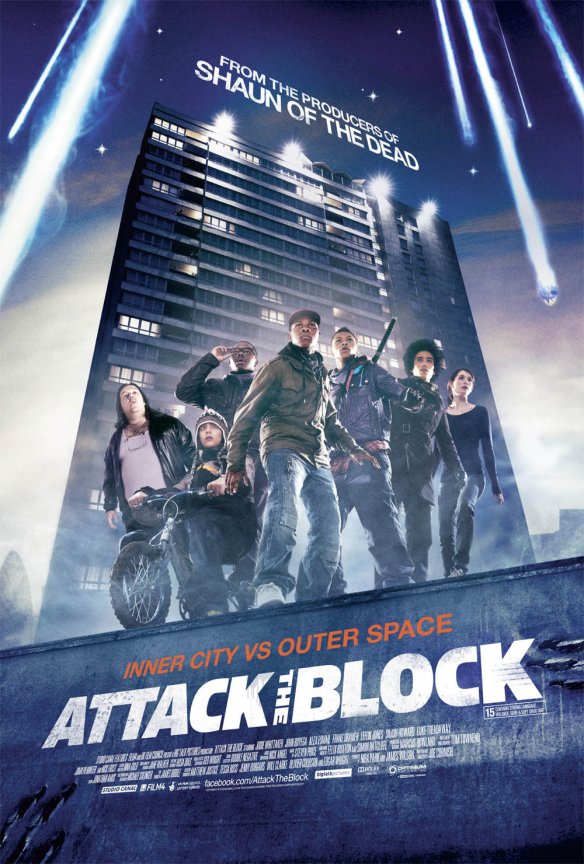Loved it! I wasn’t sure this movie was going to be any good. You can never tell with spin-offs, they often seem like unnecessary and lazy attempts to make more money off the success of a legitimately good film. But “Puss in Boots” was certainly not lacking in quality, and though I may have sat down with an “eh, might as well watch this” attitude, I walked out singing, toe-tapping and high-clapping praises. Like a flamenco dancer. A feline flamenco dancer, of course.
This story is meant to be a prequel of sorts to the Shrek movies, but it doesn’t feature any of the Shrek characters except Puss. (It’s his backstory.) It’s predictably fun, incorporating new variations of fairy-tale motifs and characters, and features almost totally positive messages. I absolutely recommend it.
In the opening sequence, Puss describes himself as “a bad kitty, a fugitive searching for a chance to clear my name.” Later, we see just how a misunderstanding, a deceitful friend, and Puss’s own naivite and choice to ignore another character’s warnings to “be careful of the company you keep”, (advice that echoes Proverbs 13:20), led to Puss losing “everything that I cared about; my brother, my honor, my home. All I thought about was the disappointment in my mother’s eyes, and I have been running ever since.”
A reunification with his old partner in crime, Humpty Dumpty, seems to provide Puss with a chance to redeem his mistake, (which resulted in the loss of the townspeople’s money). The plot involves magic Jack-and-the-Beanstalk beans, with Humpty plotting, “we go up the beanstock outlaws, and we come back legends!” Of course everything doesn’t work out just exactly according to plan. Or, there may have been more than one version of the plan, I should say.
Humpty is a pretty rotton character throughout most of the film. He’s devious, bitter, vengeful, and just plain mean. Although I feel bad for the way Humpty was bullied and ostracized as a child, I think it’s clear that much of his isolation, especially into adulthood, was of his own making. He chose to be bitter and unforgiving, and to act selfishly and dishonorably, despite his adoptive mother and best friend/adoptive brother encouraging him to be “better than this!”
The “Mama” character provides a good moral compass for the protagonists of this story. At one point she tells Puss, who has his sword drawn and is surrounded by the Comandante’s men, “Pequeño! Do not fight them, please. No more running. Please stop breaking my heart, and face what you have done.” This speech is successful in convincing Puss to surrender, but even while Puss is misbehaving it is clear that Mama carries an unconditional love for him, but that she disapproves of his choices.
Towards the end, after Humpty’s evil schemes have come to light, Puss urges him to help fix the disaster he has created, saying, “It’s never too late to do the right thing!” This is a terrific message! It makes me think of Samson, who after all his mistakes asks God to grant him undeserved strength one last time.
***SPOILER ALERT*** When Humpty, at the very end, decides to sacrifice himself so that Puss can save the baby goose and by extension the entire town, because “it’s the right thing to do,” he lets go of the rope they are dangling from. Puss looks down and sees that amidst his cracked shell there is not a mess of yolk but a solidly golden egg. “I always knew that you were good inside,” sighs Puss. The Mother goose scoops the golden egg up with her and flies it and the baby away to their castle in the clouds. It’s very beautiful and fitting, because when Humpty and the gang are breaking in to the beanstalk land, Humpty cries, “Look at this! It’s egg paradise! It’s so beautiful, I feel like I belong here!” So in a very real sense, what is portrayed in this story is that Humpty changes his heart and his actions, and even though it is after a lifetime of rottenness he is rewarded by being taken to Paradise. It reminds me of the Parable of the Workers in Matthew 20, where some labor all day and some only an hour, but God can reward everyone with the same price. None of us deserves heaven, but all of us have the chance to earn admittance, (which can only be by the blood of Jesus Christ), as long as we are breathing. It’s never too late to do the right thing! **END SPOILER**
It gets a little confusing at the end, because Puss ends up still being an outlaw, running from the soldiers, even though I thought part of his whole lesson was to face up to the consequences of what he had done instead of running from them? I mean, granted, it is way more fun to watch Puss and Kitty dance through the credits than it would be to watch Puss sit in jail and await trial during the credits, but still…it’s inconsistent with the main message. (Perhaps the ending is necessary to set up Puss’s eventual meeting up with Shrek and Donkey, in Shrek 2?) The other bit of content that some might find objectionable in a children’s movie is the way Puss is repeatedly referred to as “a great, great lover of women. Seriously, it is crazy!” but I think most of those references will go over kids’ heads.
Overall, this was a great film. I really enjoyed it. I saw it twice, and it will definitely be joining my DVD collection.







